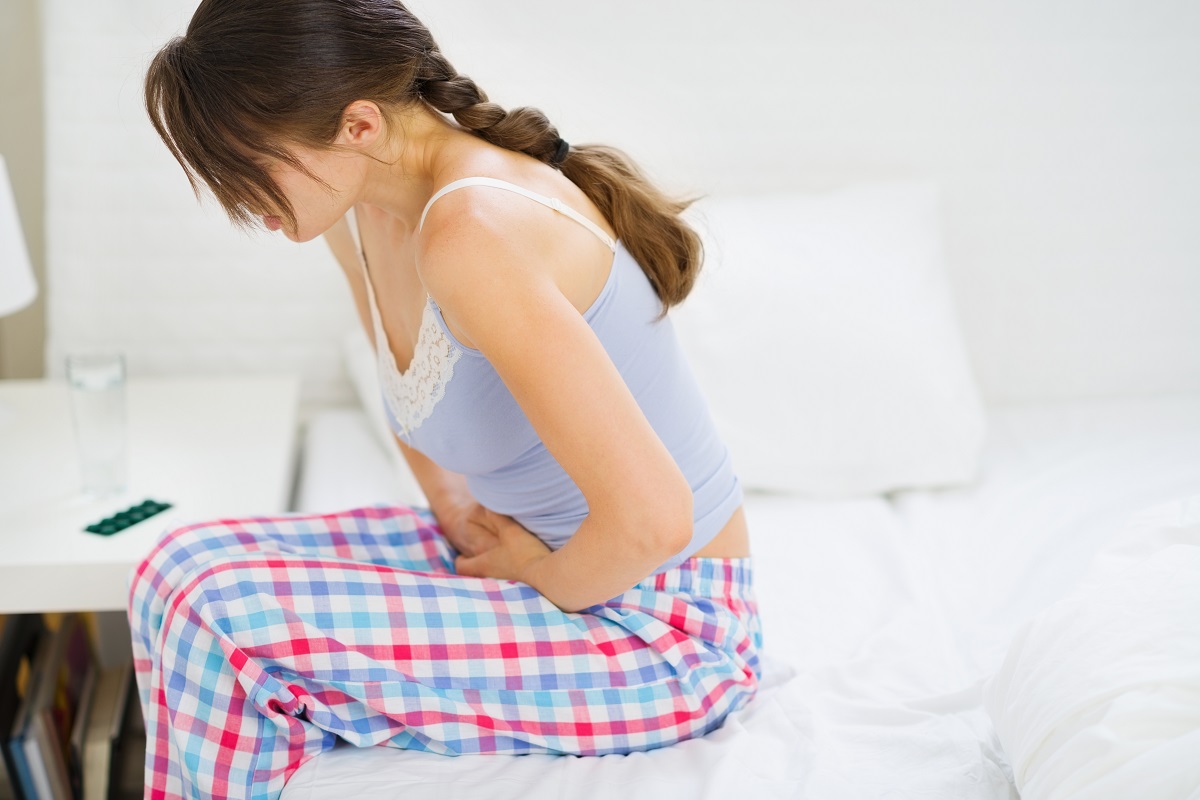Diarrhea can be an annoying and, sometimes, painful symptom to experience during menstruation. It’s especially uncomfortable if you’re already dealing with the other common side effects, such as cramps and bloating. Depending on the cause and severity of your diarrhea, there are several ways to manage it so you can stay comfortable during your period.
Read on to learn more about the possible causes of diarrhea during your period and tips for relief and prevention.
What Causes Diarrhea Before or During Your Period?
Women are likely to experience diarrhea before or during their period due to various causes. Some of the most common ones include the following:
1. Hormonal changes
During your period, your body experiences a hormone surge that can cause digestive issues, including diarrhea. The hormone prostaglandin is believed to be primarily responsible for this symptom. It’s released during your period and may cause your bowel muscles to contract more frequently. This can lead to loose or watery stools.
It also causes inflammation in your intestines, leading to cramping and abdominal pain. Some women may be more sensitive to these effects and thus experience more severe diarrhea. They may also feel nauseous or have difficulty digesting food.

2. Stress and anxiety
Stress can worsen digestive issues, including diarrhea. This is because stress can cause your body to produce hormones that alter the balance of bacteria in your gut. This can lead to an upset stomach, cramps, and watery stools. Add to this the anxiety that comes with a period, and it’s easy to see why some women may be more likely to experience diarrhea during their period.
3. Diet changes
If you’re making significant dietary changes during your period, such as eating more processed foods or fewer fruits and vegetables, you may find yourself dealing with diarrhea. Your body isn’t used to digesting the new foods and may respond with an upset stomach and loose stools.
How Hormones Affect Your Digestive System
Hormones play a big role in your digestive system. They can affect how your stomach and intestines process food, how much bile and enzymes are released, and how quickly your bowels move. As mentioned, prostaglandins are released during menstruation and can cause your bowel muscles to contract more frequently. But other hormones also affect your digestive system. For example, the thyroid hormone affects your metabolism, and hormones produced by the adrenal glands can influence how quickly food moves through your intestines.
How to Stop Diarrhea on Your Period?
Even though diarrhea during your period can be uncomfortable, there are steps you can take to help manage it. Here are some steps that may help:
Simple Dietary Changes for Relief
Many women find relief from diarrhea by making simple dietary changes. Eating smaller meals more frequently can help reduce the digestive shock of large meals. Including probiotic-rich foods, such as yogurt or kefir, in your diet can also help restore balance in your gut. Additionally, avoiding spicy and processed foods may help reduce the severity of diarrhea.
Over-the-Counter Options to Ease Symptoms
Several over-the-counter medications may help reduce the symptoms of diarrhea. Anti-diarrheal medications, such as loperamide, can reduce the frequency and severity of diarrhea. But because they can cause constipation, it’s essential to talk to your doctor before taking these medications. They may also recommend anti-inflammatory drugs to reduce cramping. For example, ibuprofen may help reduce inflammation and period pain.
Tips for Preventing Diarrhea During Your Period
While it’s not possible to prevent diarrhea during your period entirely, there are steps you can take to reduce the frequency and severity of these episodes. Here are some tips to try:
Healthy Habits to Support Digestive Health
Many women find relief from diarrhea by making simple lifestyle changes. Eating a balanced diet, getting plenty of rest, and exercising regularly can help reduce the frequency and severity of diarrhea. Additionally, managing stress through activities such as yoga or meditation may help prevent digestive issues.
Eating fiber-rich foods like whole grains, fruits, and vegetables can help support regular bowel movements. Water intake is also essential to help keep your digestive system running smoothly. When you exercise, try to stay active for at least 30 minutes daily. This can help reduce cramping and bloating during your period.
Practical Strategies for Avoiding Diarrhea
Sometimes, avoiding certain foods is the best way to prevent digestive issues, such as diarrhea. Pay attention to any foods that make your symptoms worse, and consider avoiding them during your period. For example, if dairy products trigger diarrhea before your period, consider switching to non-dairy alternatives.

You may also want to avoid caffeine and alcohol during your period, as these can disrupt your digestive system. And if you eat something that may worsen diarrhea, try to drink plenty of water to help flush it out of your system. About two liters a day should keep you hydrated and help flush out toxins.
Exploring Digestive Issues Related to Menstruation
Although period diarrhea is a common symptom, it can also be a sign of other digestive issues. If you experience frequent or severe diarrhea during your period, it’s a good idea to talk to your doctor. They can help determine the underlying cause and suggest treatments that may provide relief. Some of the most common digestive issues related to menstruation include the following:
1. Endometriosis
Endometriosis is when the tissue that usually lines the uterus grows outside of it. The extra tissue can cause inflammation and pain in the abdomen, sometimes leading to diarrhea. Some women may also experience changes in appetite and nausea due to endometriosis.
2. IBS
IBS (Irritable Bowel Syndrome) is a digestive condition that can affect the gastrointestinal system. It can cause symptoms such as cramps, bloating, diarrhea, and changes in bowel habits. Stress and hormone fluctuations can worsen the symptoms of IBS, so women may find that their symptoms worsen during their period.
3. Food intolerances
Some women may find that certain foods trigger digestive issues during their period. This can be due to food intolerances or sensitivities, which can cause symptoms such as cramps, bloating, and diarrhea. Common food-related triggers include dairy products, gluten, and processed foods.
When to Seek Help for Period-Related Diarrhea
If you’re experiencing frequent or severe diarrhea before your period, it’s essential to talk to your doctor. Sometimes, the cause may be more severe and require medical treatment. For example, some women may have an underlying condition, such as endometriosis or IBS, that needs to be managed. Your doctor can do tests to help determine the cause of your diarrhea and suggest treatments that may provide relief.

Additionally, some medications can interact with certain over-the-counter products used to treat diarrhea. So it’s important to talk to your doctor before taking any medications, even if they are available without a prescription.
Frequently Asked Questions (FAQs) About Diarrhea on Your Period
Why does diarrhea happen during menstruation?
Diarrhea during menstruation is usually caused by hormonal and dietary changes that occur during this time. Prostaglandins, hormones released during your period, can cause inflammation in the intestines and may lead to cramping and watery stools.
Is diarrhea normal during PMS?
Diarrhea is a common symptom of PMS. Hormone fluctuations, stress, or dietary changes may cause it. Some women may also find that certain foods trigger diarrhea during PMS. But if your diarrhea is severe or persistent, you should talk to your doctor.
Can birth control help with period-related diarrhea?
Hormonal birth control, such as the pill or an intrauterine device (IUD), can help reduce symptoms of period-related diarrhea. They work by stabilizing hormone levels, which can help reduce inflammation in the intestines and prevent digestive issues. However, it’s important to talk to your doctor before starting hormonal birth control.
FAQs
How long does period diarrhea last?
The duration of period diarrhea can vary depending on the cause. In some cases, it may last only a few days. But if your diarrhea is due to an underlying condition, it may last longer. Until the underlying cause is addressed, your diarrhea may continue.
How to stop period diarrhea?
Making simple dietary changes, such as eating smaller meals more frequently and avoiding processed foods, may help reduce the symptoms of period diarrhea. Over-the-counter medications can also help.
Why do I poop so much on the first day of my period?
The first day of your period is often when hormone levels are the highest. This can cause digestive issues, such as diarrhea. Although it’s normal to experience diarrhea on the first day of your period, if it persists or is severe, you should talk to your doctor.
Is it normal to throw up and have diarrhea during your period?
It’s not unheard of to experience nausea and vomiting during your period. Nausea and vomiting can be caused by hormonal changes, which can also lead to diarrhea. Some women also experience gastrointestinal distress, leading to vomiting and diarrhea.
Diarrhea isn’t uncommon during a woman’s period, but that doesn’t mean you must suffer. By taking steps to manage the cause of your diarrhea, such as dietary changes or medications, you may be able to find relief. It’s also important to talk to your doctor if you experience frequent or severe diarrhea during your period. This can help you get to the root of the problem and find ways to manage it more effectively. Remember that you don’t have to suffer in silence—talk to your doctor for help and support.




